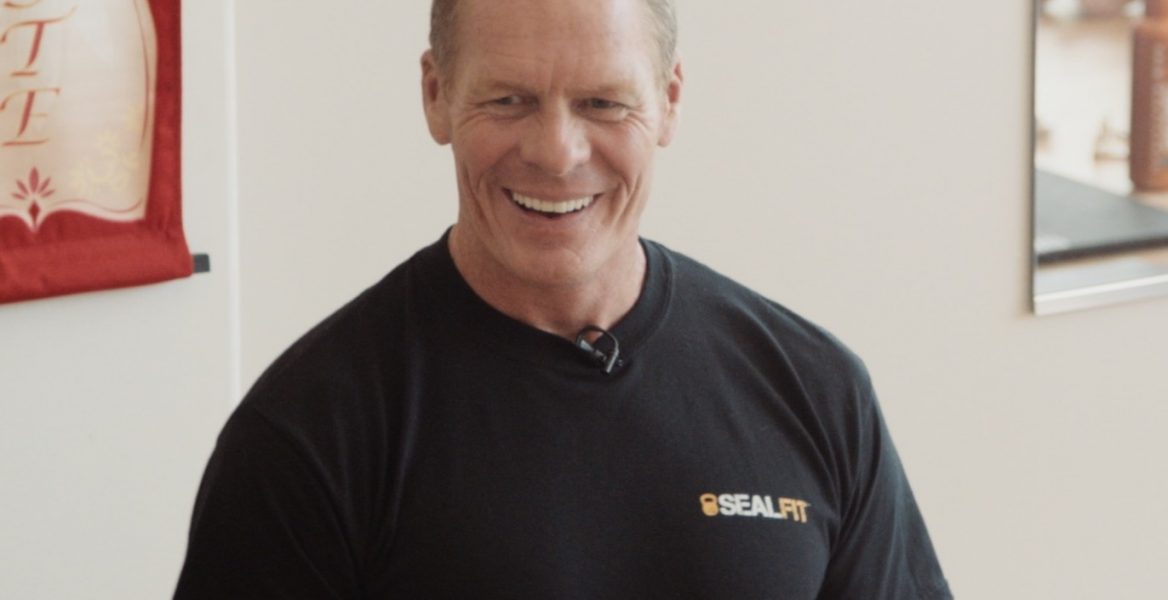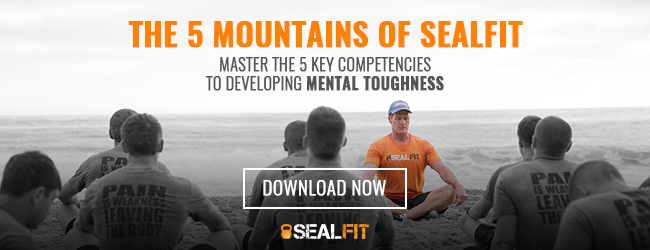Principally we are speaking about depth of character when we speak of emotional development. As we train our minds to be still, and thus more perceptive and aware we notice that our bodies “speak” to us as well. Our bodies are giant energy producers and storehouses. The energy we store is often emotional “baggage” that ideally should not be stored at all.
How often have you cleaned your garage and thrown away junk that you were certain you would need “someday?” Of course, this day never comes. With energy stored as emotional baggage, however, the day comes when this energy haunts us in the way of fear, anger, timidity, jealousy, rage, a scarcity mentality and other negative beliefs and automatic responses.
Clearly these emotions and the belief systems that they prop up are not supportive of our journey toward self-mastery and the life of a true warrior. As stillness of mind develops depth of thought and sincerity, so stillness of emotions forges depth of character.
Think of a stream, where it is shallow the water is choppy and turbulent, like our “monkey minds.” Yet, in places where the water is deep, there is stillness and calm. The master warrior exemplifies this stillness of mind and body. Hence the saying “still water runs deep.” In practical terms this means we have stilled our minds and emotions, hence have cultivated the ability to separate ourselves from both internal and external distraction.
What Does it Mean to Be Emotionally In-Control?
Consider how often we observe someone “losing their cool.” Who is the loser in the following situation?
Subject A has a brief road rage incident and drives subject B off the road. Subject B responds by flipping-off subject A then spends the rest of the day re-living the event at work and home, getting worked up each time. Meanwhile Subject A goes his merry way and forgets the whole thing. I would say that B, the victim, got the short end of this stick, wouldn’t you? Lack of emotional control can literally ruin your day, and take a swath of other people with you. A sad state of affairs, indeed.
The Importance of Emotional Control
Consider the life of Viktor Frankl as portrayed in his book Man’s Search for Meaning, where he discusses his imprisonment in Auschwitz during World War II. He had everything taken from him – his family, his wealth, his health – yet he managed to find peace and happiness. How did he do this? By developing emotional control and practicing non-attachment.
Mr. Frankl was able to distill his “story” to the fact that the only thing that can’t be taken from him was his will to live, and with a strong will, you can have happiness even in the direst of circumstances. His story is a testament to the fact that truly we run our own “Internal Affairs” departments.
In working toward self-mastery, emotional control is also a pre-requisite for authentic leadership. Even if we don’t see ourselves as a leader, the more we develop in the Five Mountains, the more others will look to us for guidance and leadership. So if we are prey to stored negative emotions when someone pushes our buttons, we will fail in our ability to focus clearly on the situation, to listen with our whole being, and to respond powerfully.
How To Develop Emotional Control
So, how can we develop emotional control? It is one of the more difficult challenges we face in training because the “shadow” side of ourselves is often deeply buried in our psyche. Like the soft underbelly of our lives, it is difficult to shed light upon. Regardless, uncovering buried emotional baggage is often all that is needed to release it.
It is critical to pay attention to this aspect of your being if you are to be a true warrior and live a purpose filled life. Here are some of my thoughts on the subject of developing emotional control and deepening your character:
Authentic Listening
The first and perhaps most effective skill to develop for emotional control is Authentic Listening. So often, we take listening for granted and do not pay much attention to it as a skill we need to develop. But have you paid attention to how well you listen?
Do you passively listen, while your mind wanders onto other things, such as a prepared response or other issues entirely? How often are we judging the speaker and consciously parsing and categorizing the information coming into our ears, without authentically listening to what they are trying to convey?
Ask yourself how well you just listen? Is it from the surface with little awareness, or from the depth of your entire being, with your ears, heart and soul? Be honest! If you ponder these questions seriously, you will find that most of us have missed the boat on this one and get a “D” for listening class.
Authentic listening is listening with your whole being in PRESENT MOMENT AWARENESS. This type of listening necessitates that the mind is not running off on some fantasy or internal dialogue. It also requires that our emotions are in check and not responding to the speaker’s words with the shadow self of stored emotions.
The magnitude of this task can be daunting. Try it and you will see what I mean. The first step is to pay attention to how little we actually listen, then work on staying aware and grounded in every communication. The very act of improving our listening will dramatically improve our overall ability to communicate – suddenly we are a “master communicator” in the eyes (or ears) of our team. It also requires awareness of the rising and falling of emotions triggered by the communication, which puts us back in the emotional driver’s seat.
Try this with your spouse or significant other if you want some immediate, and very positive, feedback!
Body Movement
The second tool I recommend in developing emotional control is a form of Body Movement. Moving in a manner that links your breathing, concentration and “flows” your energy is enormously useful for developing emotional depth. Yoga is a fabulous practice of this nature, as is Qui Gong, Tai Chi and many other internal martial arts practices. These practices, by their nature, are “integrated” training of the mind, body and warrior spirit.
At SEALFIT we train using a form of Yoga I developed called Kokoro Yoga. The balance it brings to the hard core functional training is enormous, and it is the linchpin of our 4th mountain of training. Kokoro Yoga is a blend of flowing yoga poses, qui-gong energy movement, meditation, concentration, breath control and functional fitness. I have personally witnessed trainees transform through this practice in combination with our other awareness training tools.
It is not uncommon to strike an emotional storage bank doing Kokoro Yoga and release the energy for major breakthroughs. The release can be immediate and the practitioner is caught off-guard, often completely unaware that the stored emotion was there to begin with.
Structured Therapy
Last but not least, Structured Therapy is a powerful process for clearing emotional baggage. Many of us have a jaded view of therapy and think it is for the weak of mind, or those who can’t “GUT IT OUT” through difficult situations. Not true.
Not only does it take a lot of courage to approach therapy, but my experience has shown that it is the mentally tough who do so. Therapy is a terrific way to get professional support to shed light on your “shadow self.” It is a more direct approach than authentic communication and yoga, but it takes time and some money. Combine all three of these tools and you will accelerate your growth tremendously.
Like the proverbial monster that disappears when the light is turned on, negative stored emotions can be flushed out simply by shining the light of awareness on them. Therapy is preventative maintenance or “plumbing” to root out emotional blockages that can hinder your emotional intelligence and development.
Kokoro Yoga is taking the physical approach to literally move you closer to the source of the problem, then allowing the movement and concentration to root it out. Finally, authentic listening with your whole being will instill a sense of silence in your body which will allow you to penetrate the emotional self with the light of your own awareness.
Leave a Reply cancel reply
You must be logged in to post a comment.





No Comments